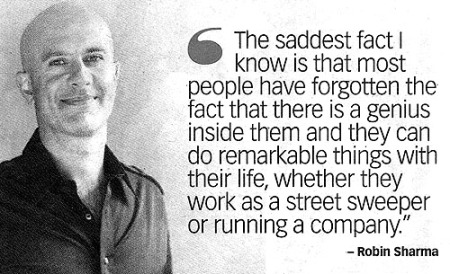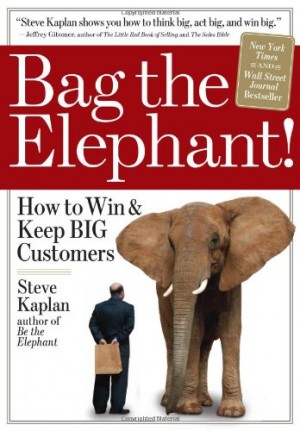I hope you’re great! Just finished an event with Richard Branson in Bucharest (a city known as the “Paris of The East”) and wanted to share my takeaways with you to help you take your career and life to its next level of wow.
Richard was polite and larger than life. A pleasure to share time with. And a man who clearly adores all he does. I encourage you to read his autobiography “Losing My Virginity” as well as his book “Business Stripped Bare” if you haven’t gone through them yet. Uber-inspiring. For people who want to become Remarkable Entrepreneurs – and express their absolute best.
Anyway, I’ll get right into some of my observations as well as the ideas we discussed. Please don’t underestimate the power of these simple ideas – superbly executed, they yield brilliant results.
1. Politeness Matters. As mentioned, Richard Branson was unfailingly polite. He mentioned to me that when he was a kid, if he criticized someone, his mother would make him stand in front of the mirror at home and say, “what you’re seeing in others is really what you’re seeing in yourself. So look in the mirror.” This educated him on the key leadership habit of looking for – and then encouraging – the gifts and talents within other people.
2. Be Massively Independent. When Richard was just four years old, his mother stopped her car and instructed him to find his own way home, over many miles. When he was about 12, she told him to cycle 100 miles to Bournemouth alone, to visit a relative. He expressed to me that these childhood experiences were his mother’s way of growing his self-reliance. And building the invincible inner core that has served him so well as an entrepreneur.
3. Screw It – Just Do It. What makes a great company (and great life) isn’t so much the inspiring idea as the flawless execution around the big idea. As Edison once said: “Genius is 1% inspiration and 99% perspiration.” Richard shared that much of his success came from his philosophy to disregard the naysayers and those telling him his dream was impossible and just get the dream done. (Please remember: the impossible is generally just the untried). This is a man with a giant bias towards action.
4. Lavish Praise on People. I know you know this: the bigger the dream, the more important the team. Having worked with many of the best entrepreneurs in the world, I’ve learned that every single one of them gets that you can’t do it alone. Beautiful to have a brave vision. But the real key is finding the genius-level talent to get that vision delivered into reality. And if all you know how to surround yourself with is mediocre people, you’re destined to experience mediocre results. Richard is brilliant at finding the right people that bring his targets of opportunity to life. And he confirmed that once they are on his team, “I lavish them with praise.” Our takeaway: relentlessly celebrate+develop+inspire your people.
5. Be a Radical Innovator. When he was a young entrepreneur with nothing more than the little college newspaper THE STUDENT, he still showed a lust for disregarding all the rules. He challenged the status quo. And disrupted what was considered normal. An example: he somehow was able to get John Lennon to do an original piece of music for him. He then put the song on a special disc and packaged it into the newspaper, right next to the interview he’d done on the rock ‘n roll legend. At Virgin Records, he recruited the Sex Pistols and reinvented a whole category of music. At Virgin Atlantic, he gave passengers massages on airplanes and dropped them home in limos. And with Virgin Galactic, he’s taking people into space. Very cool. Fantastically bold.
At the Bucharest meeting, he told the 2500+ people in the concert hall that “sometime in your lifetime, every one of you will have visited other parts of the universe.” And I believe it.
6. Build Your Brand. Richard Branson gets branding. He knows what he – and the Virgin name – stands for. Fun. Good Value. Strong customer service. And so at every possible opportunity, he evangelizes all it stands for. Oh, and he’s also clearly a master of getting attention. From hot air balloon adventures that made global news to showing up at a press conference nearly naked to promote Virgin mobile, this Remarkable Entrepreneur gets the value of owning a share of our brain cells.
7. Find Your Necker Island. Get this: Branson paid roughly $300,000 for his beloved Necker Island. He and his then girlfriend Joan were visiting the Caribbean on a getaway. They fell in love with Necker – but it was about $4,000,000. But he wouldn’t give up (let’s never discount the power of a ridiculous amount of persistence around your most closely loved goals). A few months later, the owner needed cash. Branson made his deeply discounted offer. It has served as his retreat away from the world for many years. Here’s the real point: in the world of so much noise and complexity, find your personal retreat (even if it’s an aged wooded bench in a public garden) where you can withdraw to think+create+renew+rest.
8. Lucky Wins. We make luck. Enough said.
9. Don’t Do It If It’s Not Fun. Branson wears a smile pretty much all the time. He laughs naturally. And radiates happiness. Zero doubt: he loves his life – and all that’s in it (George Clooney said he’d swap his life for Richard Branson’s – much to the delight of Richard’s wife). The lesson for us: life’s just too short to be doing work that destroys your soul. This is the best time in the history of the world to become an entrepreneur. Find work you adore. And get busy changing the world with it.
10. With Gifts Come Responsibilities. OK, so Richard Branson’s one of the richest people on the planet. But he gets that being good trumps shiny toys. He mentioned to me that, “with great wealth comes great responsibility.” And so he’s spending a lot of his days evangelizing Virgin Unite, his foundation that helps kids in need. Reminds me of what my amazing father taught me – using the words of the great poet Tagore – growing up: “Robin, when you were born, you cried while the world rejoiced. Son, live your life in such a way that when you die, the world cries while you rejoice.”
So there you go. What the iconic Richard Branson shared with me on a sunny Wednesday in Bucharest. I hope the lessons also serve you well.











